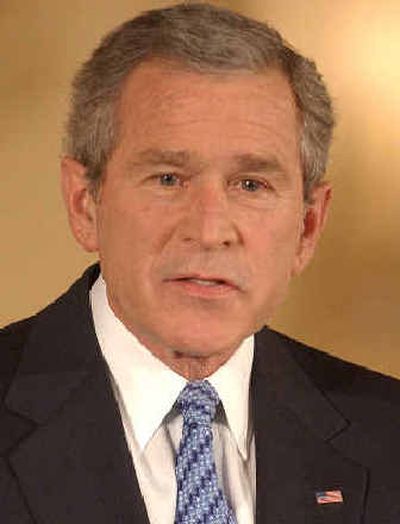Bush opens ‘charm offensive’

BRUSSELS, Belgium – President Bush scolded Russia for backsliding on democracy Monday and urged Mideast allies to take difficult steps for peace, appealing for Europe’s help in both troubled areas to “set history on a hopeful course.”
Bush opened his discussions with a gesture of reconciliation toward disgruntled allies, hosting a dinner for French President Jacques Chirac, harshest critic of the U.S. invasion of Iraq.
Despite the cordial meeting, Bush told Chirac the United States adamantly opposes Europe’s plans to lift its 15-year arms embargo against China.
Europe seemed eager for Bush’s charm offensive after bitter divisions over global climate control, Iraq and other problems. Dozens of world leaders were hurrying to Brussels for twin summits today at NATO and the European Union. European officials have complained Bush did not listen to them during his first term.
About 4,000 people registered their unhappiness in a noisy protest outside the U.S. Embassy as Bush met with Chirac. The demonstrators came from a coalition of 88 environmental, human rights, peace and other groups opposed to Bush’s policies.
Previewing two issues on today’s agenda, Bush told Syria to get out of Lebanon and demanded Iran stop its suspected nuclear weapons program. Bush did not rule out using military force in Iran, saying all options remain on the table. But, addressing widespread concerns in Europe that Iran is the next U.S. target after Iraq, Bush said: “Iran is … different from Iraq. We’re in the early stages of diplomacy.”
Three days before seeing Vladimir Putin in Slovakia, Bush admonished the Russian leader to “renew a commitment to democracy and the rule of law.” Putin has raised alarms in the West by consolidating power, rolling back democratic reforms and curbing press and political freedoms.
Bush said the United States and all European countries “should place democratic reform at the heart of their dialogue with Russia.” The president suggested that Moscow’s entry in the World Trade Organization could hinge on whether it changes course.
“I’ve got a good relationship with Vladimir; I intend to keep it that way,” Bush told reporters. “But, as well, I intend to remind him that if his interests lie West, that we share values … and those values are important.”
In the keynote address of his five-day trip, Bush signaled the United States will become more involved in the Mideast to foster growing hopes for peace.
Saudi Arabia should give its citizens more freedom, Bush said, and Egypt should expand democracy. Israel should freeze settlement activities and the Palestinians must dismantle terror groups and fight corruption, Bush said.
He challenged Palestinian leader Mahmoud Abbas, at a conference in London next month, “to put forward a strategy of reform which can and will gain support from the international community, including financial support. I hope he will seize the moment.”